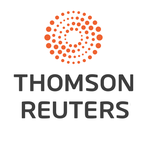Market Turmoil: Tensions in the Middle East Shake Investor Confidence
October 2, 2024, 10:00 am
U.S. Department of the Treasury
Location: United States, District of Columbia, Washington
Employees: 10001+
The stock markets in Asia are feeling the tremors of geopolitical unrest. On October 2, 2024, a wave of fear swept through the financial landscape as investors reacted to Iran's missile strike on Israel. This event, a spark in an already volatile region, sent shockwaves through global markets, leading to a significant sell-off in equities and a surge in safe-haven assets.
The Nikkei in Japan fell by 2%, while South Korea's KOSPI dropped 0.6%. These declines mirrored the previous day's turmoil on Wall Street, where the S&P 500 experienced its worst day in a month. The markets were not just reacting to the missile strike; they were also digesting a slew of economic data that painted a mixed picture of growth and inflation.
As tensions escalated, oil prices surged. Brent crude climbed 1.5% to $74.66 per barrel, while U.S. WTI futures rose 1.7% to $71. This increase was fueled by fears of supply disruptions in a region already fraught with conflict. Investors are acutely aware that any further escalation could lead to a spike in oil prices, which would ripple through the global economy.
In the face of uncertainty, investors flocked to safer assets. Gold, often seen as a refuge during turbulent times, hovered near its all-time high. The dollar also gained strength, trading close to its highest level against the euro in three weeks. This flight to safety is a classic response to geopolitical crises, where the allure of stability outweighs the potential for higher returns in riskier assets.
The backdrop of this market turmoil is a complex web of economic indicators. The U.S. job market remains resilient, suggesting that the Federal Reserve may not be as aggressive in cutting interest rates as some had anticipated. This sentiment is further supported by the recent data showing an unexpected increase in job openings. However, the labor market is showing signs of slowing, which could complicate the Fed's decision-making process.
Meanwhile, in Europe, inflation trends are shifting. Recent data indicated that inflation in the eurozone has fallen below the European Central Bank's target of 2%. This development has led to speculation about potential rate cuts, further complicating the global economic landscape. The interplay between rising oil prices and cooling inflation creates a paradox that central banks must navigate carefully.
As Asian markets opened, the mood was cautious. The ongoing Golden Week holiday in China meant that mainland markets were closed, limiting trading activity. However, Hong Kong's Hang Seng index bucked the trend, soaring 6% on the back of Beijing's stimulus measures. This divergence highlights the uneven recovery across the region, with some markets thriving while others struggle under the weight of geopolitical tensions.
The uncertainty surrounding the Iran-Israel conflict looms large. Iran's missile attack was described as a response to Israel's actions against its allies in Lebanon. While Iran has stated that its military actions are complete for now, the potential for retaliation from Israel and the U.S. adds another layer of complexity. Investors are acutely aware that any escalation could lead to significant market volatility.
Analysts warn that geopolitical events often overshadow economic fundamentals. The unpredictability of conflict makes it difficult for investors to price risk accurately. As tensions simmer, the market remains on edge, waiting for the next development. The situation is fluid, and any shift in rhetoric from either side could have immediate repercussions on market sentiment.
In the U.S., the economic outlook is also under scrutiny. The Atlanta Fed's GDPNow model recently revised its estimate for third-quarter growth down to 2.5%, a significant drop from the previous 3.1%. This adjustment reflects the growing concerns about the sustainability of economic growth amid rising geopolitical risks.
The looming threat of a U.S. dock strike adds another layer of uncertainty. If negotiations do not progress, the potential economic impact could be severe, costing the economy billions each day. Investors are closely monitoring this situation, as it could further complicate the economic landscape.
As the day unfolds, key economic indicators from South Korea and Japan will provide additional insights into the health of the region's economies. South Korea's inflation and manufacturing data, along with Japan's consumer confidence figures, will be critical in shaping market expectations.
In conclusion, the current market environment is a delicate balancing act. Geopolitical tensions, economic indicators, and investor sentiment are all intertwined. As investors bunker down, the focus will remain on safe-haven assets while keeping a wary eye on developments in the Middle East. The road ahead is uncertain, and the markets will continue to react to the ebb and flow of global events. In this high-stakes game, caution is the name of the game.
The Nikkei in Japan fell by 2%, while South Korea's KOSPI dropped 0.6%. These declines mirrored the previous day's turmoil on Wall Street, where the S&P 500 experienced its worst day in a month. The markets were not just reacting to the missile strike; they were also digesting a slew of economic data that painted a mixed picture of growth and inflation.
As tensions escalated, oil prices surged. Brent crude climbed 1.5% to $74.66 per barrel, while U.S. WTI futures rose 1.7% to $71. This increase was fueled by fears of supply disruptions in a region already fraught with conflict. Investors are acutely aware that any further escalation could lead to a spike in oil prices, which would ripple through the global economy.
In the face of uncertainty, investors flocked to safer assets. Gold, often seen as a refuge during turbulent times, hovered near its all-time high. The dollar also gained strength, trading close to its highest level against the euro in three weeks. This flight to safety is a classic response to geopolitical crises, where the allure of stability outweighs the potential for higher returns in riskier assets.
The backdrop of this market turmoil is a complex web of economic indicators. The U.S. job market remains resilient, suggesting that the Federal Reserve may not be as aggressive in cutting interest rates as some had anticipated. This sentiment is further supported by the recent data showing an unexpected increase in job openings. However, the labor market is showing signs of slowing, which could complicate the Fed's decision-making process.
Meanwhile, in Europe, inflation trends are shifting. Recent data indicated that inflation in the eurozone has fallen below the European Central Bank's target of 2%. This development has led to speculation about potential rate cuts, further complicating the global economic landscape. The interplay between rising oil prices and cooling inflation creates a paradox that central banks must navigate carefully.
As Asian markets opened, the mood was cautious. The ongoing Golden Week holiday in China meant that mainland markets were closed, limiting trading activity. However, Hong Kong's Hang Seng index bucked the trend, soaring 6% on the back of Beijing's stimulus measures. This divergence highlights the uneven recovery across the region, with some markets thriving while others struggle under the weight of geopolitical tensions.
The uncertainty surrounding the Iran-Israel conflict looms large. Iran's missile attack was described as a response to Israel's actions against its allies in Lebanon. While Iran has stated that its military actions are complete for now, the potential for retaliation from Israel and the U.S. adds another layer of complexity. Investors are acutely aware that any escalation could lead to significant market volatility.
Analysts warn that geopolitical events often overshadow economic fundamentals. The unpredictability of conflict makes it difficult for investors to price risk accurately. As tensions simmer, the market remains on edge, waiting for the next development. The situation is fluid, and any shift in rhetoric from either side could have immediate repercussions on market sentiment.
In the U.S., the economic outlook is also under scrutiny. The Atlanta Fed's GDPNow model recently revised its estimate for third-quarter growth down to 2.5%, a significant drop from the previous 3.1%. This adjustment reflects the growing concerns about the sustainability of economic growth amid rising geopolitical risks.
The looming threat of a U.S. dock strike adds another layer of uncertainty. If negotiations do not progress, the potential economic impact could be severe, costing the economy billions each day. Investors are closely monitoring this situation, as it could further complicate the economic landscape.
As the day unfolds, key economic indicators from South Korea and Japan will provide additional insights into the health of the region's economies. South Korea's inflation and manufacturing data, along with Japan's consumer confidence figures, will be critical in shaping market expectations.
In conclusion, the current market environment is a delicate balancing act. Geopolitical tensions, economic indicators, and investor sentiment are all intertwined. As investors bunker down, the focus will remain on safe-haven assets while keeping a wary eye on developments in the Middle East. The road ahead is uncertain, and the markets will continue to react to the ebb and flow of global events. In this high-stakes game, caution is the name of the game.


